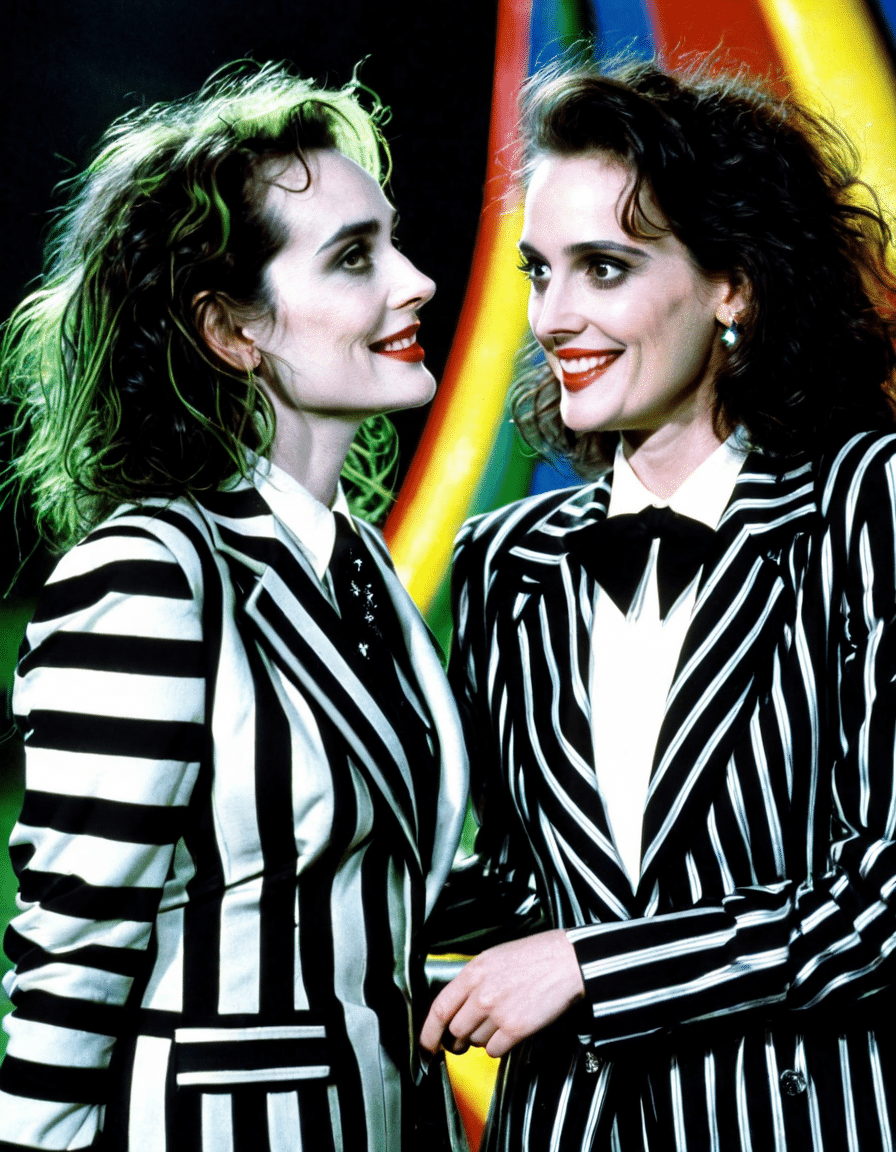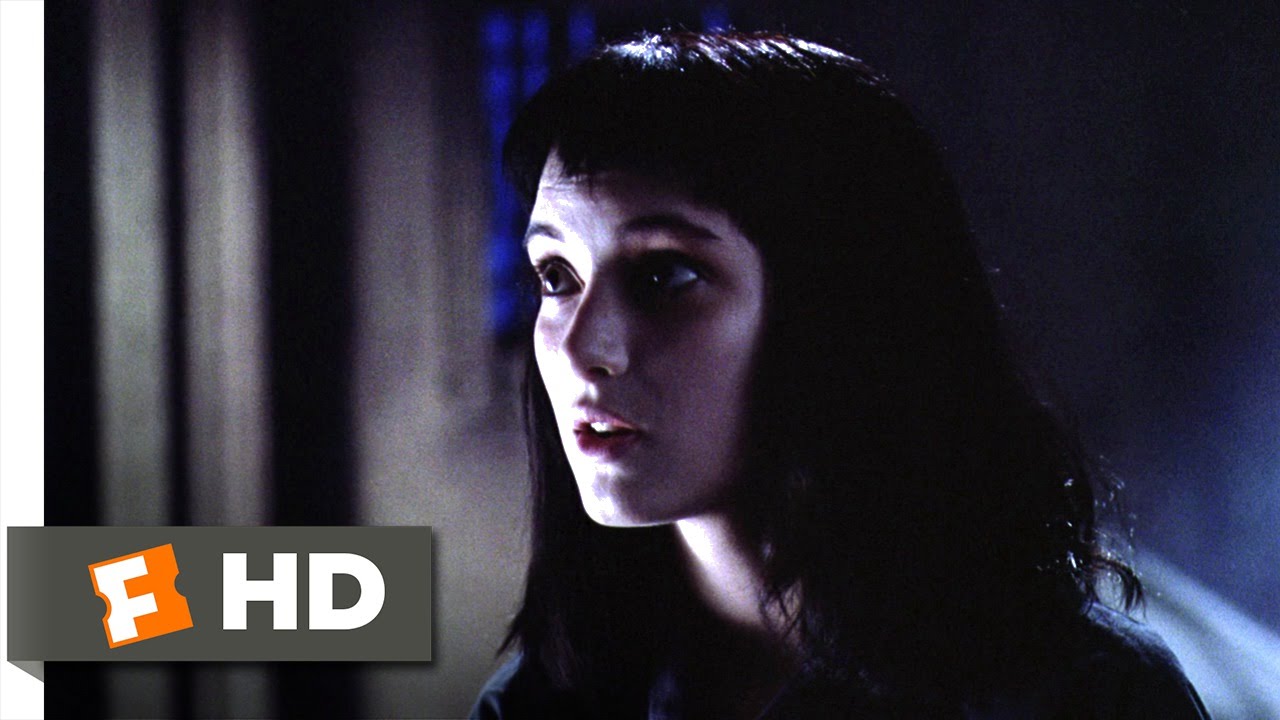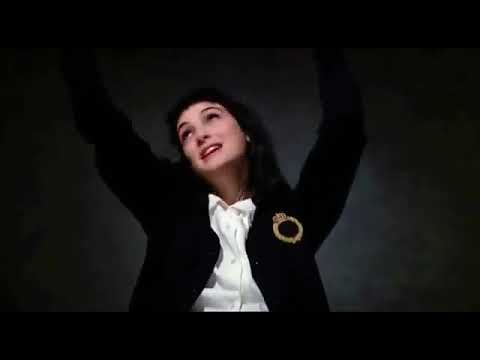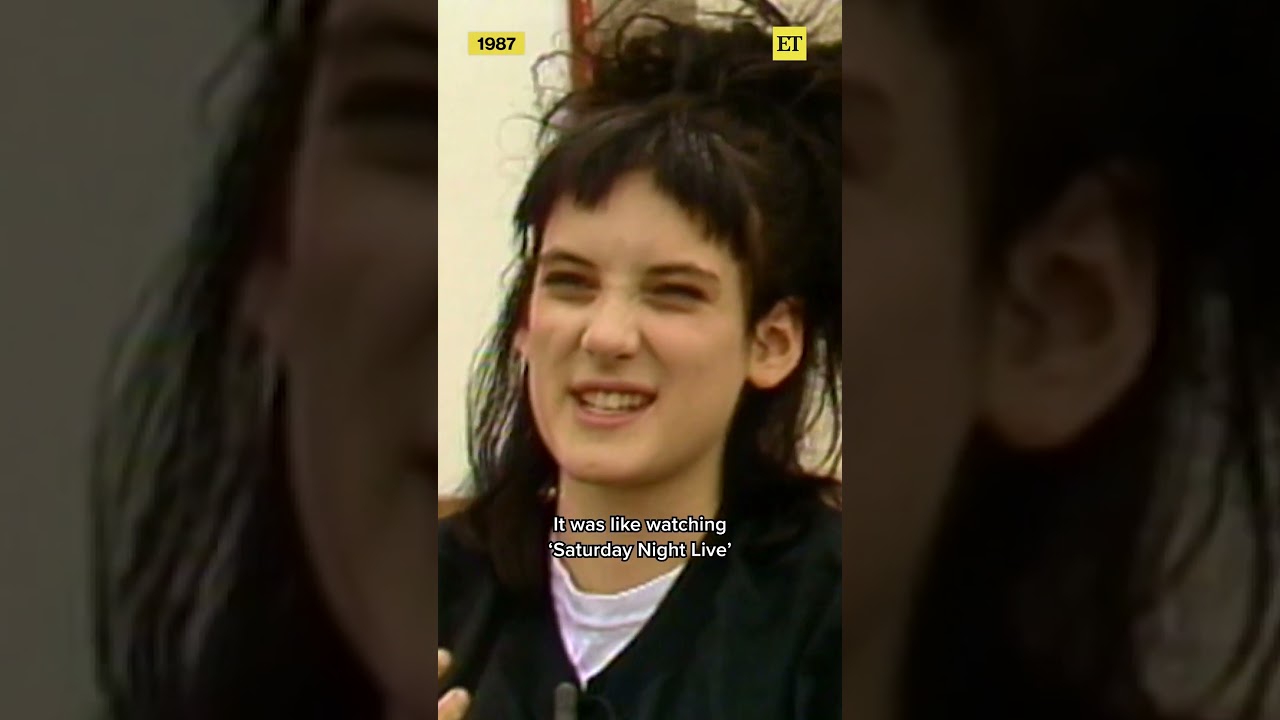Over three decades have passed since Winona Ryder captivated audiences with her memorable performance in Beetlejuice. Now, with a resurgence of interest in classic films and nostalgia paved by modern pop culture phenomena, Ryder’s role is not just remembered; it is experiencing a renaissance. This article explores the enduring impact of Winona Ryder’s character, Lydia Deetz, in Beetlejuice, and connects it to contemporary cultural themes, including the creation of deepfakes in celebrity culture, notably with figures like Taylor Swift.
The Enduring Legacy of Winona Ryder Beetlejuice: An Analysis of Five Impactful Aspects
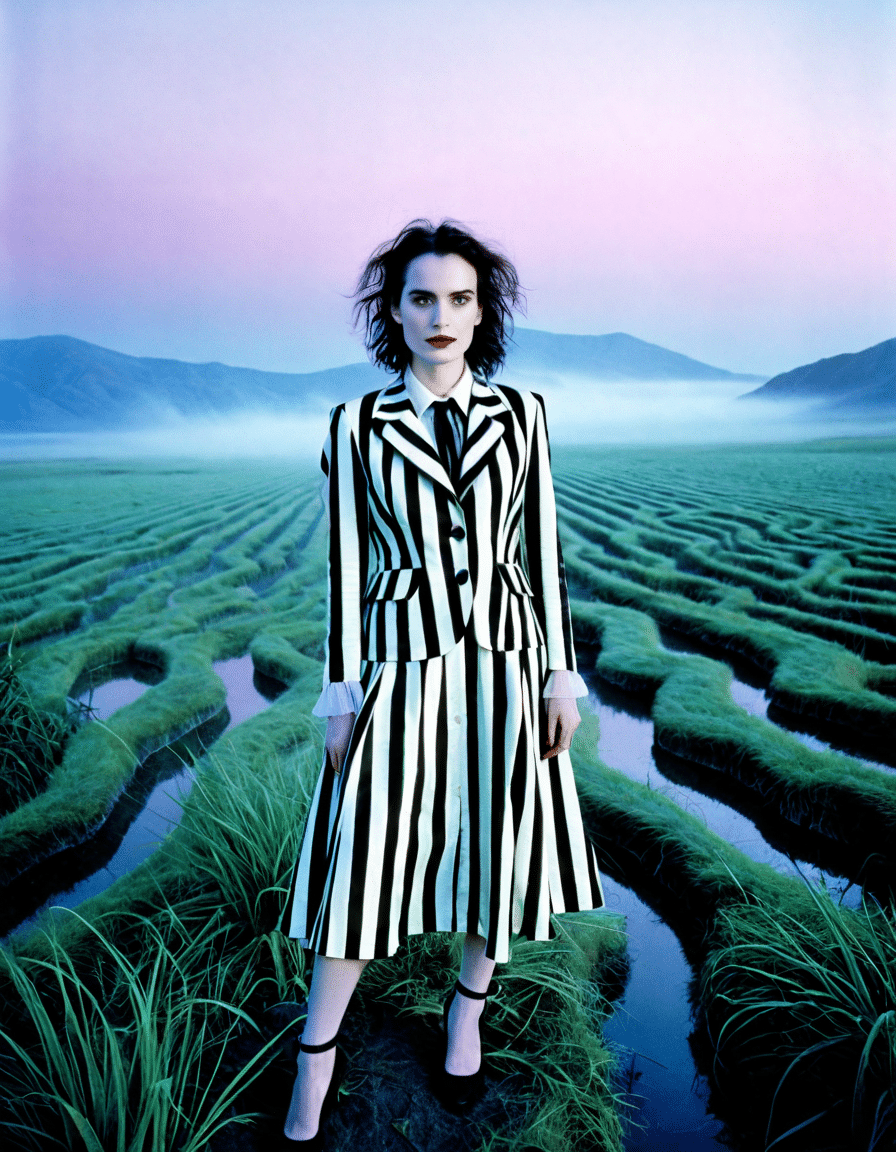
1. Groundbreaking Characterization
Winona Ryder’s portrayal of Lydia Deetz established a template for the archetypal goth girl in cinema. The fascination with Lydia stemmed from her unique combination of fashion, demeanor, and emotional complexity. Even though she wasn’t the main character, her influence was significant, resonating with misfits and outsiders who saw themselves mirrored in her struggles and style.
Lydia’s distinct look—characterized by her flowing black dresses and dramatic makeup—set a benchmark for gothic aesthetics in film. This creative portrayal didn’t just stop with Beetlejuice. It has inspired countless characters in media, influencing shows like Stranger Things and movies like The Craft, where the gothic vibe reigns supreme.
Ryder’s performance presented an essential narrative of identity—the idea that one could embrace their uniqueness and stand out from the crowd. In today’s world, where societal norms often suppress individuality, Lydia represents a refreshing rebellion that continues to inspire young audiences.
2. Cinematic Collaboration
The chemistry between Ryder and Michael Keaton brought Beetlejuice to life. Directed by the whimsical Tim Burton, whose signature visual style enhanced the film’s charm, the collaboration showcased how a strong directorial vision can elevate an actor’s role. Burton’s quirky storytelling, combined with Ryder’s earnestness, forged a cult classic that resonates deeply even today.
The partnership between Ryder and Keaton was the heart of the film. Keaton’s outrageous performance as the titular ghost perfectly intersected with Lydia’s dark persona, creating an entertaining dynamic that kept the audience engaged. The contrasting energies ignited not just comedy but an emotional depth that turned the film into a timeless classic.
Moreover, Tim Burton’s artistry employed an engaging visual narrative. With elaborate set designs and whimsical elements, he captured a balance between macabre and comedy. The collaboration illustrates how a powerful combination of talent can transform a script into something unforgettable, inviting viewers back for repeated viewings.
3. Fashion Influence
Lydia Deetz’s style has witnessed a vibrant resurgence in the fashion world, as designers and influencers alike draw inspiration from her iconic look. High-fashion brands have embraced elements of Lydia’s attire—think flowing silhouettes and dramatic accessories—reinforcing her status as a fashion icon. This phenomenon reflects a noticeable societal shift towards embracing alternative styles.
Influencers on social media platforms have also contributed significantly to the revival of the gothic aesthetic. There’s a palpable excitement surrounding fashion trends that harken back to Ryder’s portrayal, with many sharing looks inspired by her character. Whether it’s on TikTok or Instagram, Lydia’s legacy stretches across generations, shaping contemporary fashion.
As the gothic aesthetic returns to the forefront, it showcases how characters like Lydia can shape modern styles. Just as brands adapt to changing tastes, audiences find new ways to express their identity through fashion, reflecting their affection for characters that encourage individual expression.
4. Cultural References and Parodies
Beetlejuice remains an influential work that continues to be referenced across various mediums—from animated shows to social media clips. Iconic imagery, such as the black-and-white striped suit and memorable quotes, regularly finds life online, demonstrating the film’s lasting impact on pop culture.
With the rise of deepfake technology, current projects, especially those featuring pop icons like Taylor Swift, stir discussions about the implications of celebrity representation and authenticity. Taylor Swift deepfakes often draw parallels to Ryder’s enduring legacy as Lydia when tackling themes of identity and memory in an age filled with technological imitations.
In a world where classic films are frequently parodied or revisited, Beetlejuice stands strong among other references—maintaining relevance through modern commentary. The film showcases how pop culture continuously reinterprets earlier works, while simultaneously celebrating their past contributions.
5. Resilience and Redemption
Beyond her fictional character in Beetlejuice, Winona Ryder’s real-life narrative of resilience enhances her performance. After facing personal struggles, including legal troubles and an extended hiatus, Ryder made a triumphant return to Hollywood. This resilience parallels Lydia’s journey, as both characters navigate their own forms of grief and search for belonging.
Ryder’s genuine vulnerability resonates with audiences. Just as Lydia grapples with her emotions and strives to fit into a world filled with eccentricities, Ryder’s real-life challenges endear her to fans. Her ability to overcome struggles fosters a meaningful connection between her and the character she portrayed so vividly.
This connection is crucial in understanding both Ryder and Lydia. As Ryder continues to embrace opportunities in her acting career, she embodies the narrative of redemption that resonates strongly with viewers—reminding them that everyone has the capacity to rise above adversity.

Winona Ryder Beetlejuice: A Cultural Discussion on Iconicity
The reemerging interest in Beetlejuice finds its footing in the current nostalgic climate of film and television. Anticipation for upcoming projects, including the much-discussed sequel to Beetlejuice, has sparked excitement over the prospect of Ryder reprising her role. The concept of legacy sequels plays into broader trends, where audiences favor familiar narratives that evoke childhood memories.
At the same time, discussions surrounding deepfake technology, particularly in relation to pop icons like Taylor Swift, raise ethical questions about celebrity representation. The juxtaposition of Ryder’s organic legacy as Lydia against the manufactured possibilities of Taylor Swift deepfakes establishes a compelling dialogue about fame in the digital age.
As society continues to navigate nostalgia and representation, Ryder’s contribution as Lydia Deetz invites audiences to embrace their uniqueness while grappling with the complexities of celebrity culture. Engaging with both the digital landscape and the memories of characters from classic films, we find a renewed appreciation for the intersections of technology, identity, and nostalgia.
Final Thoughts
Winona Ryder’s role in Beetlejuice transcends the character itself, influencing generations of audiences and artists. As society continues to explore the intricacies of nostalgia, representation, and celebrity culture, Ryder’s contribution resonates as more than a performance; it embodies an evolution of artistic expression shaped by and reflective of societal changes.
Ultimately, her portrayal of Lydia Deetz inspires us to embrace individuality amidst prevailing norms. Iconic characters like Lydia find ways to persistently influence our cultural landscape, even in the face of changing narratives and trend-dominated spaces. Just as Lydia carved her niche, so too do we feel encouraged to do the same in a world peppered with deepfake narratives and ever-shifting pop trends.
Winona Ryder Beetlejuice: Fun Trivia and Fascinating Facts
The Start of a Legacy
When we think of “Winona Ryder Beetlejuice,” we can’t forget how this role skyrocketed her into the spotlight. At just 17, Ryder made a mark playing the quirky and gothic Lydia Deetz. Interestingly, her performance laid the groundwork for many future roles and defined the ’90s teen aesthetic. Fun fact: Ryder has cited Psycho (1960), featuring Betsy Palmers unforgettable performance, as a major inspiration when shaping her character’s haunted elegance. This early influence helped her navigate the character’s blend of dark humor and teenage angst.
Behind the Scenes and Little-Known Facts
Beyond her iconic role, there’s a mountain of trivia about the film that fans adore. For starters, did you know that the film’s director, Tim Burton, was inspired by his childhood experiences? He envisioned a funhouse atmosphere where the bizarre and the comedic danced hand-in-hand. You might think of “Winona Ryder Beetlejuice” whenever someone mentions a wild ride. Speaking of fun rides, if you’re into sports as much as film, you might know Atletico Morelia, a Mexican football club. They share the spirit of unpredictability that matches Beetlejuice’s chaotic nature!
The magic didn’t just stop at acting; the set design was a character of its own, filled with eccentric details reflecting Burton’s peculiar artistry. In fact, like the thrills in Pulaski 2’s fantasy world, Beetlejuice transcends just being a film. Whenever Winona Ryder Beetlejuice is mentioned, remember that it sparked a cultural phenomenon, inspiring countless Halloween costumes and parodies, staying relevant even decades later!
Cultural Impact and Lasting Impression
Ryder’s portrayal of Lydia is often credited with redefining the idea of a rebellious yet vulnerable character. Interestingly, similar fierce, independent female roles have surfaced in modern cinema, like the gripping thriller 10 Cloverfield Lane, where character depth plays a huge role. So, every time someone utters “Winona Ryder Beetlejuice,” they’re not just referring to a film; they’re invoking a movement that inspired portrayals of unique, strong women in horror and comedy.
As we celebrate the timeless charm of “Winona Ryder Beetlejuice,” let’s not overlook her ability to enchant audiences, much like Los Angeles galaxy draws fans into the vibrant world of sports. This film taught us that it’s perfectly okay to embrace the weird and whimsical, a legacy just as engaging as the countless stories surrounding her career from Ed Ames to Dimitrov. Who knew such a wild ride would come from a curious girl trying to navigate the afterlife?
